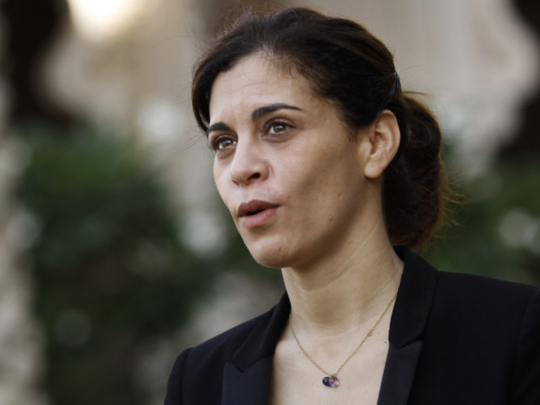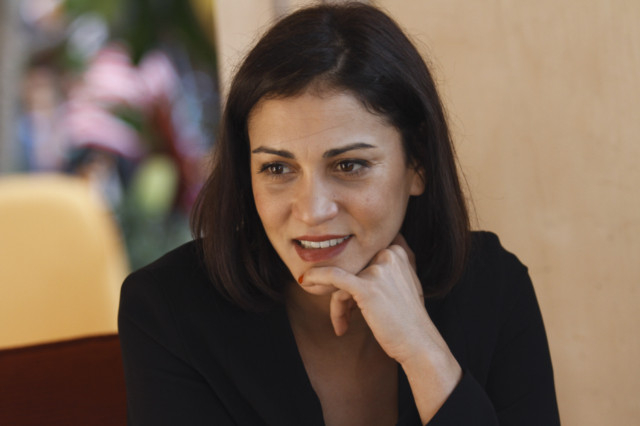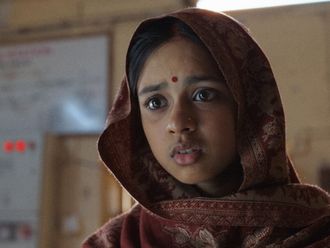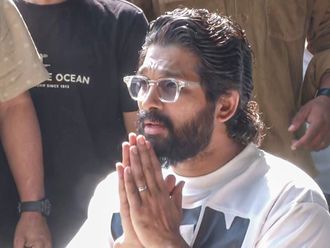
Rock the Casbah is a difficult film to watch, but it’s a cinematic experience you don’t want to miss.
Set in upper-class Tangiers, Morocco, the tale is a disarmingly honest one of three sisters losing their father, played by Egyptian film giant Omar Sharif, and coming to terms with what he represented to each of them during his three-day funeral.
Was he the most important man of their life? Or was he the authoritarian patriarchal figure who stole their freedom? In answering these sensitive questions, and in exploring taboo themes of incest and suicide, the character-driven film toes the delicate balance between love, shame and culture in a way that rings true to many families all around the Arab world, never once alienating the audience.
Miriam, who struggles with her marriage, is the sibling obsessed with being beautiful. Kenza, who misses her dad most direly, is the traditional, family-oriented perfectionist. Sofia, who left for America to marry a foreigner against her parents’ wishes and only returned with her son for the funeral, is the independent, open-minded voice of reason who forces everyone to confront truths they’re hiding from.
Their mother, Aicha, who is played by veteran Palestinian actress Hiam Abbass, is a tough, resilient matriarch making a valiant effort to pick up the pieces left behind in the wake of her husband’s death.
“I tried to show different personalities of Moroccan women,” said director Laila Marrakchi. “I’m very lucky. I had beautiful, strong actresses and they helped me a lot. We’re very different, we’re from different countries, but at the same time, we’re very close, we’re fighting for the same things.”
Morjana Alaoui, the director’s cousin, played the pivotal role of Sofia, who often found herself right in the centre of the drama. Due to her character being somewhat of an outcast, she had to keep from immersing herself completely amongst her co-stars in order to stay in character throughout filming, reminding herself constantly to keep her distance even though she loved working with the other women.
Morjana seemed fascinated with the way that the male characters were “basically transparent” in the movie as the females took the lead.
“I’m quite happy to represent a film that’s based on women. The actresses are mainly women, the director’s a woman, the producer’s a woman, it’s a representation of women who have something to say, and actually do say it,” she said. “We see, even in the film, when the patriarch dies, all these women finally take the role that they always needed to take and say what they could never say.”
One man who made an impact, however, was the legend himself, Sharif, who played the role of dead father. His charming, often humorous “spirit” made appearances in every section of the film, welcoming the audience at the beginning and seeing them off at the end with words of wisdom.
“Oh, wow, I didn’t have much scenes with him, [but] I was very intimidated. When he walked by in a hall, I’d go the other way,” said Morjana. “I was too intimidated. But he’s the nicest, nicest person. With hair and make-up people, he was so gentle. He was very gentle. He’s amazing.”
Laila, who only has one other film under her belt, echoed the sentiment.
“I was a bit shy in the beginning, you know, you have a legend in front of you, and you think, ‘All these big directors have directed this guy! I’m just a small director!’ To direct Omar, I was feeling uncomfortable,” she admitted. “But he’s amazing, you know? When he’s in front of the camera, it’s like magic. Sometimes it was very difficult, but at the same time I’m very happy to have him in my film.”











